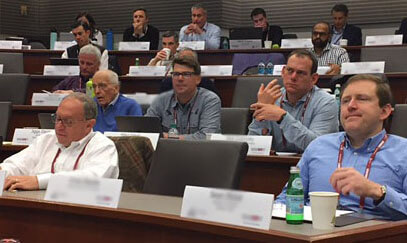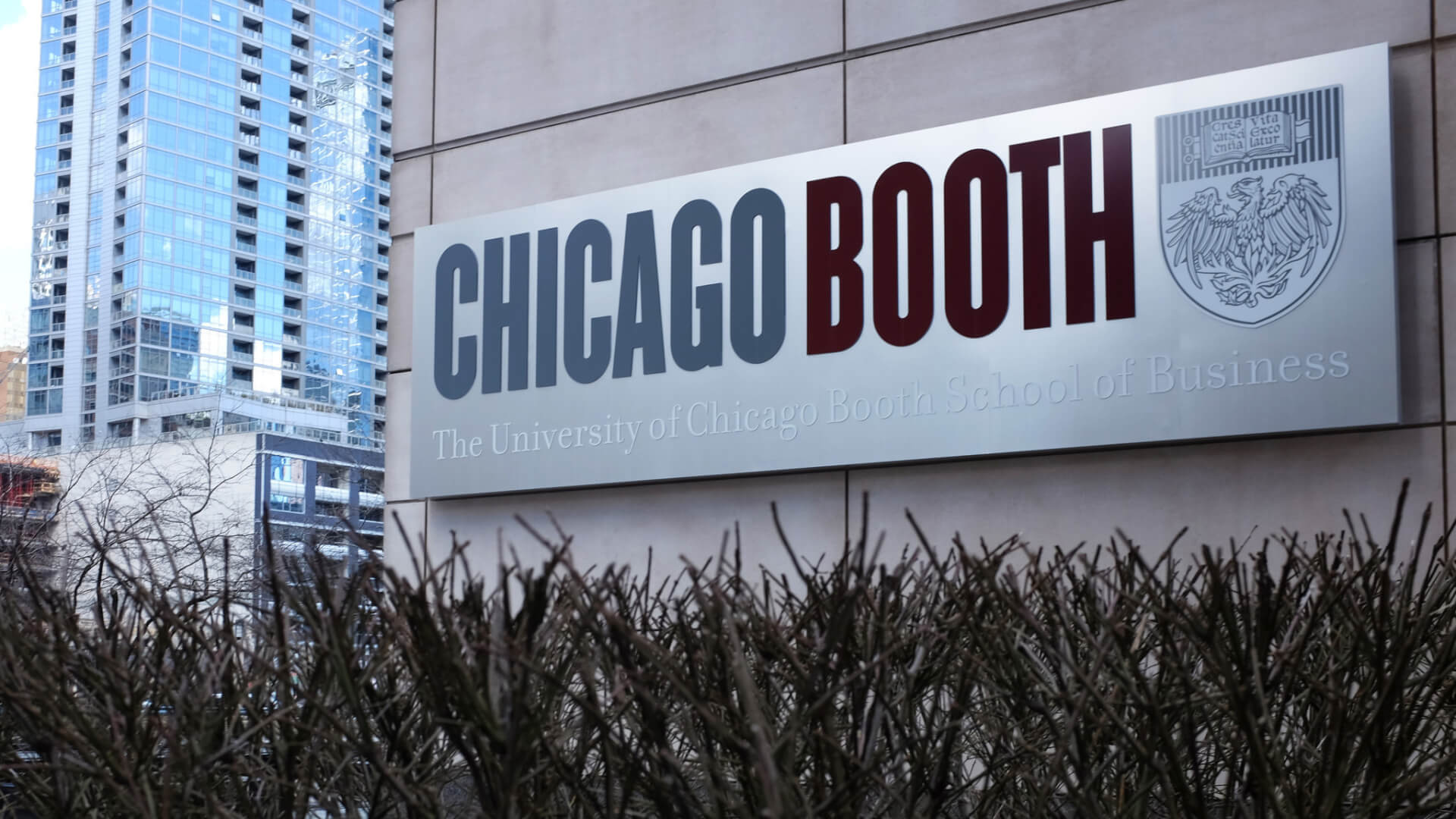What’s an educator doing in a corporate classroom? Well, it turns out, plenty.

I spent this week at the University of Chicago’s Booth School of Business in an education program for CEOs. It can best be described as a mini-MBA Boot Camp. I was with nearly 100 CEOs from around the world, who came to share experiences and learn from some of the sharpest minds at the Booth Business School. (Booth has produced more Nobel laureates in the Economic Sciences than any other school.)
Several years ago, I completed a fellowship for Heads of School at Columbia’s Dewey School of Education. In both cases, I emerged with a great sense of respect for what our students do every day. It also provoked memories of my graduate school days that were intense and pressure filled. Admittedly, it’s a lot more enjoyable to go to school when you don’t have tests and quizzes to worry about (but there was homework!). I left more committed than ever to ensure that we are a joyful, healthy, and community-oriented school.
In this week’s blog I want to share just a few of my observations about the class and my colleagues:
- I was the only nonprofit chief executive officer.
- It’s hard to sit still for nine hours listening to lectures and not be able to move around. (Nearly every professional development in which I have participated implements terribly traditional approaches that innovative schools have rejected as ineffective for real learning.)
- It’s hard to not check your email or phone during class. A few CEOs were called out for not paying attention.
- About 90% of the CEOs were men. The women were incredibly talented and clearly have achieved enormous success in their lives through hard work and perseverance. But, the glass ceiling was noticeable.
- It was a racially and ethnically diverse group, but much of that can be attributed to the fact that it was an international event. There were leaders from India, Canada, Brazil, Germany, Australia, and other nations. However, there was very little racial diversity among the American CEOs in the room.
- I was struck with the emotional intelligence of all the participants. Everyone I met was kind, curious, and interested. And, everyone was wicked smart.
- We heard great speakers—professors, but also other business and political leaders, including the Governor of Illinois.
- I thought of a number of CA students who would thrive and contribute in this kind of setting and hoped that someday, some of our students, especially our young women and students of color, will be in the room as CEOs.
- Most immediately, it underscored that we as parents and teachers need to do more to help young students become financially literate.
This year, as part of our SPEAK program, we brought New York Times Money Columnist Ron Lieber to CA to talk about children and money. The presentation was based on his best-selling book, The Opposite of Spoiled: Raising Kids Who Are Grounded, Generous, and Smart About Money, and left all of us wanting more in the way of financial education. Someone once said, “Teaching kids how to handle money is about more than dollars and cents. It’s about character and responsibility.” While we have numerous programs, from our Fourth Grade Mini-Society to our Philanthropy Boards, and from Upper School Econ to Investment Club, no doubt, there is more that could be done.
Because I was the only nonprofit CEO and educator in the room, I was a bit of a curiosity. Fellow participants asked me for my thoughts on the state of education, and often the conversation drifted to the issues about which most parents are nervous: student mental health, anxiety, depression, and college placement.
But, given these were CEOs deeply involved in our capitalist system, they were also interested in the seeming affection that some Gen Zs and Millennials have for socialism. I am not going to get political here, but their questions provoked some thoughts.
In the summer, for the National Association of Independent Schools, I teach a group of rising educational leaders at Emory University in Atlanta, Ga. I give a presentation on a head of school’s role in managing school finances. The audience is typically teachers and junior administrators. They have expertise in teaching and learning, but not necessarily in the business of running a school. While many may be left-leaning, I enjoy pointing out that when you lead a private school, you have to accept the fact that you are now a true capitalist. You are charging significant dollars for a product that your customers can get for free elsewhere (notwithstanding all of the value-added elements that come with an independent school education). You exist in a competitive space with little regulation and outside interference. You have to be an expert on managing budgets. You have to understand varying aspects of Human Relations. You have to understand marketing. You have to raise capital. You need to be attentive to customer service. The list goes on and on. I know many academics are so often trying to change the world through their work with students that it can be easy to point out the problems without fully thinking through how it might affect the real world. As a result, there is an interesting inflection in this nation. This past summer, a Gallup Poll revealed that for Americans aged 18 to 29, less than half view capitalism positively.
One of our guest speakers at the University of Chicago was Raghuram Rajan. He is the Katherine Dusak Miller Distinguished Professor of Finance at the school. He has published many articles and books and also served as the Governor of the Reserve Bank of India. As soon as he began to speak, I knew I was in the presence of a great mind. (In 2005 at a Federal Reserve Conference, he predicted the financial crisis.) He spoke about his recent book, The Third Pillar: How Markets and States Leave the Community Behind.
You might think from the title that he is opposed to capitalism, but he is quite the opposite. He notes that, in the age of globalization and the digital revolution, we are losing sight of how markets have served important community roles. He gave example after example of market solutions that can help individuals and communities and negate the destructive effects of aspects of capitalism that young people and scholars cite to justify major reform of our economic system.
During the question and answer period, I asked Professor Rajan what he would say to young people about why capitalism is a superior model to socialism. I cited the trends of young people’s attitudes. He was well aware of this trend, and his answer was insightful. He noted that if one looks beyond European nations like Sweden, which most Americans assume are “socialist” (they actually have free market economies but have high taxes to support more significant social safety nets) and looks at true “socialist” states like Venezuela or Cuba, the answer is clear. Those nations severely restrict liberty and are not democracies. He brilliantly explained the connection between capitalism and democracy.
The key thing he noted was the importance of sustaining communities—something I can relate to as a school leader. In many ways, it was an obvious answer, but somehow we are overlooking the connection between markets and communities in our current political discourse. In a review of Rajan’s book, the Manhattan Institute’s Oren Cass described Rajan’s narrative as, “A voice from within some of our most market-focused institutions arguing that ‘community matters’ and so ‘it is not enough for a country to experience strong economic growth.’”
In fact, I would argue that without sustaining our communities, our economic growth is not sustainable either. Just like Rajan, I believe that stronger communities are a helpful means to an end.
